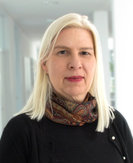CIRC-UITS Circular Integration of independent Reverse supply Chains for the smart reUse of IndusTrially relevant Semiconductors
Goal
In Europe there is a high dependency on semiconductors, especially in the automotive industry and in household and consumer electronics. Old electronics are currently being recycled as electrical scrap (WEEE = Waste Electrical and Electronic Equipment) and are used more as raw materials. There is almost no reuse of components such as semiconductors. In order to make this practice more sustainable, recycling and end-of-life as well as the remanufacturing of components or recycling must be considered at the design stage. This approach is intended to make the EU less dependent on the mining of critical raw materials and to reduce dependency on suppliers outside the EU. In the EU project CIRC-UITS, OFFIS is working, among other things, on a decision-making tool that supports the sustainable recycling of Printed Circuit Boards (PCB) and makes the complex interdependencies visible. Digital technologies offer the possibility of bringing together the required information from several sources and making it available for the respective application. At the same time, target values can be calculated and compared in order to digitally support the change to recycling. Contradictory objectives are weighed against each other, such as the service life and the amount of recycled raw materials. The decision tool is used in case studies from the automotive industry and household electronics in order to validate the results in practice and to determine real potential. Furthermore, OFFIS is involved in the development of serious games, which present the results of the project to both a specialist audience and the general public in a playful way, in order to convey the basic principles of recycling electronics.
The project is funded under the Horizon Europe funding program.
Internal Leader
Scientific Director
Pehlken, A., Davila, M.F., Dawel, L., Meyer, O.; 005 / 2024
Lisa Dawel; ADTC -eda workshop 2024 presentations; April / 2024
Lisa Dawel, Alexandra Pehlken, Lorenzo FrancescoGandini, Paolo Rosa; 006 / 2024
Alessandro Fontana, Siro Dell’Ambrogio, VeronicaDosi, Simone Fasola, Antoinette Van Schaik,Markus A. Reuter, Alexandra Pehlken, Lisa Dawel,Ole Meyer; 006 / 2024
Ole Meyer, Lisa Dawel, Alexandra Pehlken; 006 / 2024
Fernando Andres Penaherrera Vaca; November / 2024
Pehlken, Alexandra and Meyer, Ole and Dawel, Lisa; Procedia CIRP; 2025
Dawel, Lisa and Schmedes, Felix and Fernando Penaherrera and Pehlken, Alexandra; Procedia CIRP; 2025
Aleksandr Bystrov and Ole Meyer and Fabian Kott and Karin Saemann and Achim Maat and Lisa Dawel; IFAC-PapersOnLine; 2025
Tobias Hoiten, Maria Fernanda Davila Restrepo, Alexandra Pehlken; 001 / 2026
Lisa Dawel, Mattia Calabresi, Francesca Lazzari, Aleksandr Bystrov, Ole Meyer, Felix Schmedes, Antoinette van Schaik, Julien van Damme, Markus A. Reuter, Alexandra Pehlken; 001 / 2026
Alessandro Fontana, Siro Dell’Ambrogio, Veronica Dosi, Simone Fasola, Giuseppe Landolfi, Christian Trisolini, Antoinette van Schaik, Markus A. Reuter, Lisa Dawel and Alexandra Pehlken; 001 / 2026
Paolo Rosa et al; 12 / 2025
Lisa Dawel, Achim Maat, Karin Sämann, Paolo Rosa, Daniele Perossa, Christoforos Spiliotopoulos, Pauline Mourlon, Jean-Baptise Prono, Elodie Brauer-Surgot, Fabrice Blasenhauer, Kevin Boissie, Jan Kratky, Silvia Kandemir, Fatih Yaman, Boštjan Okorn, Cyrille Dalla Zuanna, Csaba Szunder; 2025
www.polimi.it
www.sat-research.at
www.innovalia.org
www.tno.nl
www.txtgroup.com
www.crf.it
www.bosch.com
www.macdermid.com
www.continental.com/fr-fr
www.maras-bv.nl
www.whirlpoolcorp.com
www.besu.solutions
www.autodemolizionepollini.it
www.tracxon.tech
www.erionweee.it
www.din.de
www.made-cc.eu
www.pbkik.hu
www.supsi.ch



